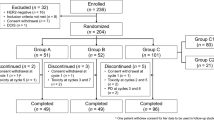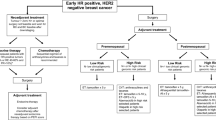Abstract
Objectives: To evaluate the expression of P-glycoprotein (P-gp) and it’s effect on chemotherapy response in metastatic breast carcinoma. Methods: 46 postoperative patients with metastatic breast carcinoma were enrolled. P-gp expression was detected by SABC immunohistochemical method. These patients were treated with combined chemotherapy of cyclophosphamide, pirarubicin and 5-fluorouracil for at least two cycles. The relationship between P-gp expression and chemotherapeutic response was analyzed. Results: The positive rate of P-gp expression was 56.5%, the P-gp expression in the patients with lung or liver metastasis was higher than that in patients with skin or lymph node metastasis (P=0.049). The overall response rate was 58.1% in 43 patients; the response rate (89.5%) of the P-gp negative group was higher than that (30.0%) of the P-gp positive group (P<0.01). The response rate (87.5%) in the patients with skin or lymph node metastasis was higher than that (40.7%) in the patients with lung or liver metastasis (P<0.05). In the postoperative patients who had received CAF or CMF regimen adjuvant chemotherapy previously, the response rate of metastatic diseases to chemotherapy had no significant difference (71.4% and 37.5%, respectively) (P=0.052). Conclusion: Patients with metastatic breast carcinoma had higher P-gp expression and these patients should be treated with non-MDR drugs chemotherapy.
Similar content being viewed by others
References
Krishna R, Mayer LD. Multidrug resistance (MDR) in cancer. Mechanisms, reversal using modulators of MDR and the role of MDR modulators in influencing the pharmacokinetics of anticancer drugs [J]. Eur J Pharm Sci 2000; 11:265–83.
Lage H, Dietel M. Effect of the breast-cancer resistance protein on atypical multidrug resistance [J]. Lancet Oncol 2000; 1:169–75.
Ueda K, Yoshida A, Amachi T. Recent progress in P-glycoprotein research [J]. Anticancer Drug Des 1999; 14:115–21.
Ueda K, Cardarelli C, Gottesman MM, et al. Expression of full-length cDNA for the human “MDR1” gene confers resistance to colchicine, doxorubicin, and vinblastine [J]. Proc Natl Acad Sci USA 1987; 84:3004–8.
Leonardo E, Valente G, Cappia S, et al. Immunohistochemical evaluation of P-glycoprotein in human malignancies by monoclonal antibody MC57 [J]. Int J Cancer 1994; 57:841–6.
Trock BJ, Leonessa F, Clarke R. Multidrug resistance in breast cancer: a meta-analysis of MDR1/gp170 expression and its possible functional significance [J]. J Natl Cancer Inst 1997; 89:917–31.
Li EX, Li R, Zhang ZH, et al. Clinical significance of P-glycoprotein expression in tissues of breast carcinoma [J]. Chin J Oncol 1998; 20:371–3.
Botti G, Chiappetta G, D’Aiuto G, et al. PCNA/cyclin and p-glycoprotein as prognostic factors in locally advanced breast cancer [J]. Tumori 1993; 79:214–8.
Seymour L, Bezwoda WR, Daney RD. P-glycoprotein immunostaining correlated with ER and with high ki67 expression but fails to predict anthracycline resistance in patients with advanced breast cancer [J]. Breast Cancer Res Treat 1995; 36:61–9.
Early Breast Cancer Trialists’ Collaborative Group. Polychemotherapy for early breast cancer: an overview of the randomized trials [J]. Lancet 1998; 352:930–42.
Nieth C, Priebsch A, Stege A, et al. Modulation of the classical multidrug resistance (MDR) phenotype by RNA interference (RNAi) [J]. FEBS Lett 2003; 545(2–3):144–50.
Gottesman MM. How cancer cells evade chemotherapy [J]. Cancer Res 1993; 53:747–54.
Banerjee D, Bertino JR. Myeloprotection with drug-resistance gene [J]. Lancet Oncol 2002; 3:154–8.
Abonour R, Williams DA, Einhorn L, et al. Efficient retrovirus-mediated transfer of the multidrug resistance 1 gene into autologous human long-tem repopulating hematopoietic stem cells [J]. Nature Medicine 2000; 6:652–8.
Author information
Authors and Affiliations
Corresponding author
Additional information
Biography: LI En-xiao (1962–), male, associate professor, the First Hospital of Xi’an Jiaotong University, majors in medical oncology.
Rights and permissions
About this article
Cite this article
Li, Ex., He, Zq., Wu, Y. et al. Clinical significance of P-glycoprotein expression in metastatic breast carcinoma. Chin. J. Cancer Res. 17, 71–74 (2005). https://doi.org/10.1007/s11670-005-0015-4
Received:
Accepted:
Issue Date:
DOI: https://doi.org/10.1007/s11670-005-0015-4




